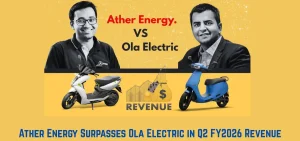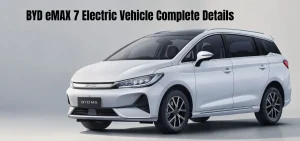India’s automobile story took an electrifying turn with the arrival of India’s Early 5 Electric Cars. Long dominated by petrol and diesel, the roads of India began witnessing small, innovative electric vehicles that dared to challenge convention. These pioneers, though modest in speed and range, sparked curiosity, captured imaginations, and planted the seeds of India’s modern EV revolution. From urban commuters to fleet experiments, each model played a crucial role in shaping policies, infrastructure, and consumer awareness. In this article, we unravel the fascinating journey of these five trailblazing electric cars, exploring their origins, makers, and lasting impact on Indian mobility.
Quick Comparison Table of India’s Early 5 Electric Cars
| Company | Model | Launch Year | Launch Price (Approx.) | Key Highlight |
|---|---|---|---|---|
| Reva Electric Car Company | Reva (G-Wiz) | 2001 | ₹3.5 – ₹4 lakh | India’s first mass-produced EV |
| Mahindra Electric (formerly Reva) | e2o | 2013 | ₹5.96 lakh | Smart urban electric hatchback |
| Tata Motors | Tigor EV | 2017 | ₹11 lakh (fleet use) | First electric sedan for fleets |
| Mahindra Electric | eVerito | 2016 | ₹9.5 – ₹10 lakh | Sedan EV with higher range |
| Tata Motors | Nexon EV | 2020 | ₹13.99 lakh | India’s first popular long-range EV |
5. Tata Nexon EV (2020) – India’s Game-Changer EV
Company Details
- Company: Tata Motors
- Launch Year: 2020
- Manufacturing: Pune & Sanand
- Role: First mainstream, long-range EV for the Indian masses.
Model Details
- Model Name: Tata Nexon EV
- Launch Date: January 2020
- Specifications:
- Battery: 30.2 kWh lithium-ion
- Motor: 95 kW (127 hp)
- Range: 312 km (ARAI certified)
- Top Speed: 120 km/h
- 0–100 km/h: 9.9 seconds
- Charging: 8 hours (AC), 60 mins (DC fast charging 0–80%)
- Features: Touchscreen infotainment, connected car tech, regenerative braking, dual airbags, ABS, hill assist
Market Impact & Reception
- Price: ₹13.99 lakh at launch
- Positioning: Affordable long-range EV SUV
- Reception: Huge success, became India’s best-selling EV. Praised for design, performance, and range.
Legacy
- Revolutionized India’s EV industry.
- Created mass consumer interest in EVs.
- Laid the foundation for Tata’s EV dominance (over 80% EV market share by 2022).
4. Tata Tigor EV (2017) – Tata’s First Electric Sedan
Company Details
- Company Name: Tata Motors Ltd
- Established: 1945
- Manufacturing: Pune, Sanand, Lucknow
- Role: One of India’s largest automakers, Tata entered EVs with fleet-oriented sedans.
Model Details
- Model Name: Tata Tigor EV
- Launch Date: November 2017
- Production Start: Initially for the EESL fleet order
- Specifications:
- Battery: 16.2 kWh lithium-ion (later upgraded to 21.5 kWh)
- Motor: 30 kW
- Range: 130 km (later 213 km with ZIPTRON upgrade)
- Seating: 5-seater sedan
- Charging: 6–8 hours (AC), 90 mins (DC fast charging)
- Features: Dual airbags, infotainment system, regenerative braking
Market Impact & Reception
- Price: ₹11 lakh (fleet sales only initially)
- Reception: Strong adoption in government fleets under the FAME scheme. Private buyers showed interest after the 2021 facelift.
Legacy
- Established Tata Motors as a key EV player.
- Foundation for future EVs like Nexon EV and Tiago EV.
3. Mahindra eVerito (2016) – The Practical Sedan EV
Company Details
- Company: Mahindra Electric Mobility Ltd
- Launch Year: 2016
- Manufacturing: Nashik, Maharashtra, and Bangalore
- Role: Designed as a family-oriented sedan EV, positioned above e2o.
Model Details
- Model Name: Mahindra eVerito
- Launch Date: June 2016
- Specifications:
- Battery: 21.2 kWh lithium-ion
- Motor: 41 hp (30 kW)
- Range: ~110 km (later extended to 181 km)
- Top Speed: 86 km/h
- Seating: 5-seater sedan
- Charging: 8 hours (AC), 1.5 hours (fast charge)
- Features: GPS navigation, regenerative braking, spacious sedan design
Market Impact & Reception
- Price: ₹9.5–₹10 lakh
- Target Market: Fleet operators, government EV adoption programs
- Reception: Popular in government procurement but low demand in the private segment.
Legacy
- Played a big role in government fleet electrification.
- Provided groundwork for Mahindra’s later EV R&D.
2. Mahindra e2o (2013) – The Smart Urban Hatchback
Company Details
- Company Name: Mahindra Electric Mobility Ltd (formerly Reva Electric Car Company)
- Established: Acquired by Mahindra Group in 2010
- Manufacturing Location: Bangalore, Karnataka
- Role: As India’s first major automaker to invest in EVs, Mahindra developed e2o to target urban electric mobility.
Model Details
- Model Name: Mahindra e2o
- Launch Date: March 2013
- Specifications:
- Battery: 48V lithium-ion, 10 kWh
- Motor: 19 kW (25.5 hp)
- Range: 120 km
- Top Speed: 81 km/h
- Charging: 5 hours (AC), 1.5 hours (quick charge)
- Features: Regenerative braking, touchscreen infotainment, smartphone connectivity, keyless entry
Market Impact & Reception
- Price: ₹5.96 lakh at launch
- Positioning: Compact city car for eco-conscious urban buyers
- Reception: Praised for its tech features but criticized for high cost and limited charging options.
Legacy
- First lithium-ion battery EV made in India.
- Showed potential for smart, connected mobility.
- Established Mahindra Electric as India’s early EV leader.
1. Reva (2001) – India’s First Mass-Produced Electric Car
Company Details
- Company Name: Reva Electric Car Company (RECC)
- Established: 1994
- Headquarters & Manufacturing: Bangalore, Karnataka
- History & Role: Founded as a joint venture between the Maini Group of India and AEV LLC of the USA, RECC was India’s pioneering EV company. It played a crucial role in proving that electric cars could be commercially manufactured in India.
Model Details
- Model Name: Reva (also marketed as G-Wiz in the UK)
- Launch Year: 2001
- Production Start: 2001, Bangalore
- Specifications:
- Battery: 48V lead-acid
- Motor Power: 17 kW (25 hp)
- Range: ~80 km
- Top Speed: 80 km/h
- Charging: 7–8 hours (AC), 2.5 hours (fast charge)
- Seating: 2 adults + 2 children
- Dimensions: Compact city hatchback
Market Impact & Reception
- Price: Around ₹3.5–₹4 lakh
- Positioning: Affordable city commuter
- Reception: Though limited in speed and size, it gained global attention and exports to Europe. In India, it struggled due to a lack of charging infrastructure.
Legacy
- India’s first mass-produced electric car.
- Paved the way for Mahindra’s later EV investments.
- Symbol of India’s EV innovation during the early 2000s.
Conclusion
The legacy of India’s Early 5 Electric Cars highlights the nation’s bold steps into electric mobility. From the pioneering REVA to the practical Mahindra e2o and eVerito, and finally to Tata’s Tigor EV, these vehicles were more than machines — they were experiments that shaped policies, inspired infrastructure development, and educated consumers about sustainable driving. Each car, regardless of sales volume, played a pivotal role in India’s transition from petrol-diesel dominance to an EV-ready future. The foundation laid by these five trailblazers ensures that India’s electric vehicle revolution is not just a vision, but an unstoppable journey toward a greener tomorrow.
Related Articles:-
Driving the Future: A Brief History of Electric Vehicles
Vintage Electric Cars: Rediscovering the Pioneers of the Past





